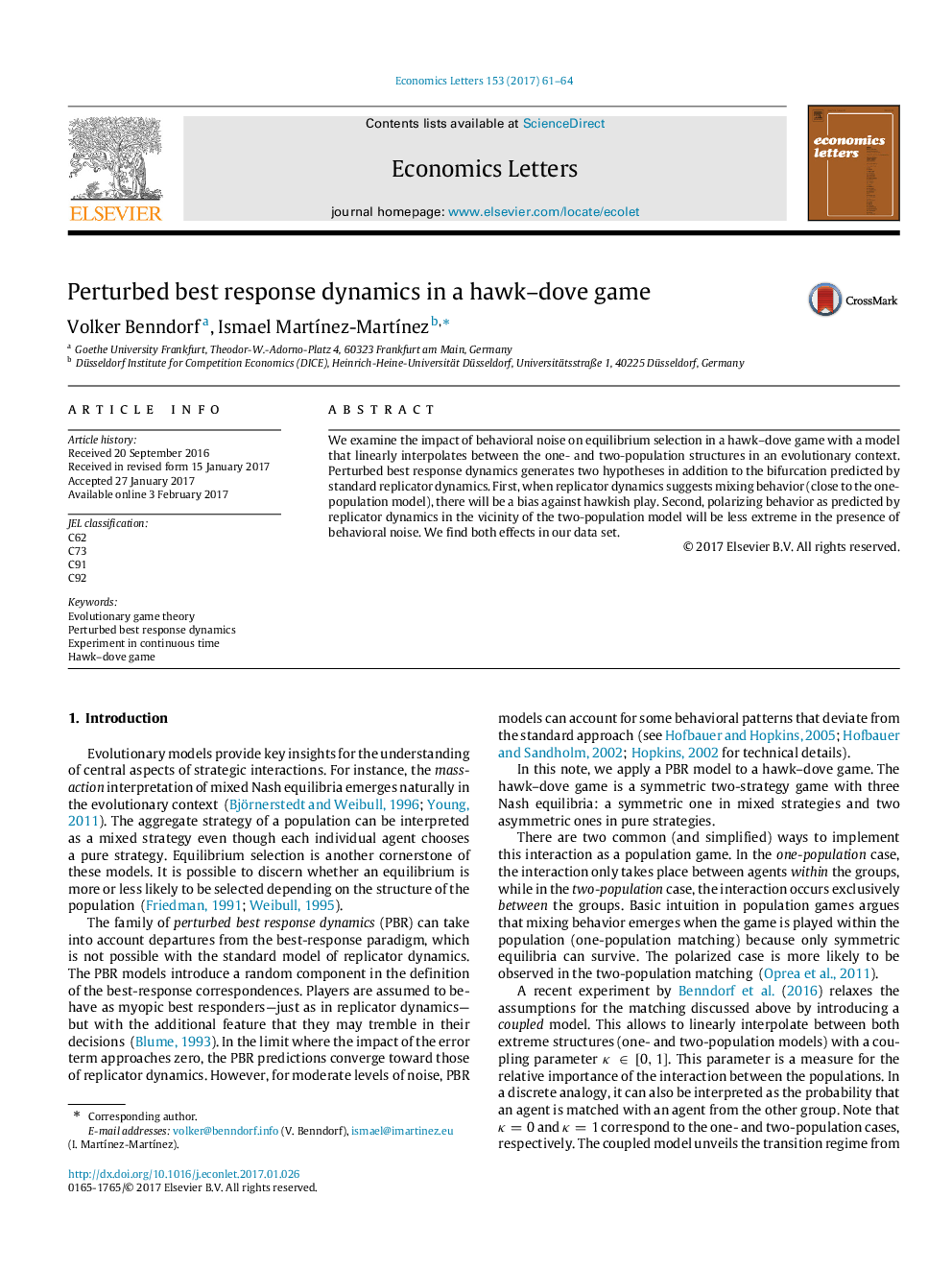| Article ID | Journal | Published Year | Pages | File Type |
|---|---|---|---|---|
| 5057724 | Economics Letters | 2017 | 4 Pages |
Abstract
We examine the impact of behavioral noise on equilibrium selection in a hawk-dove game with a model that linearly interpolates between the one- and two-population structures in an evolutionary context. Perturbed best response dynamics generates two hypotheses in addition to the bifurcation predicted by standard replicator dynamics. First, when replicator dynamics suggests mixing behavior (close to the one-population model), there will be a bias against hawkish play. Second, polarizing behavior as predicted by replicator dynamics in the vicinity of the two-population model will be less extreme in the presence of behavioral noise. We find both effects in our data set.
Related Topics
Social Sciences and Humanities
Economics, Econometrics and Finance
Economics and Econometrics
Authors
Volker Benndorf, Ismael MartÃnez-MartÃnez,
